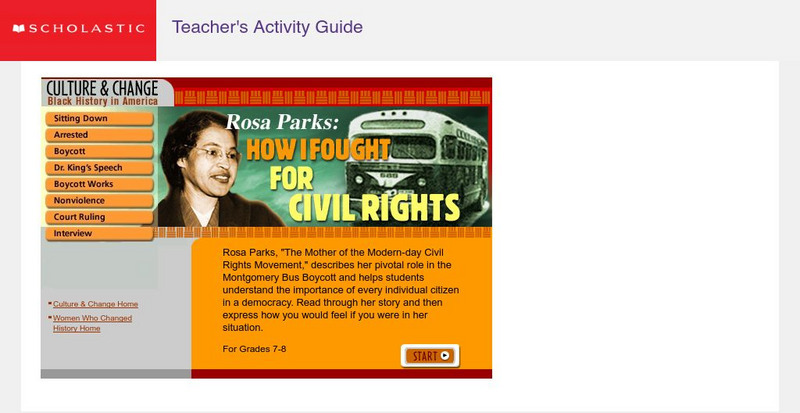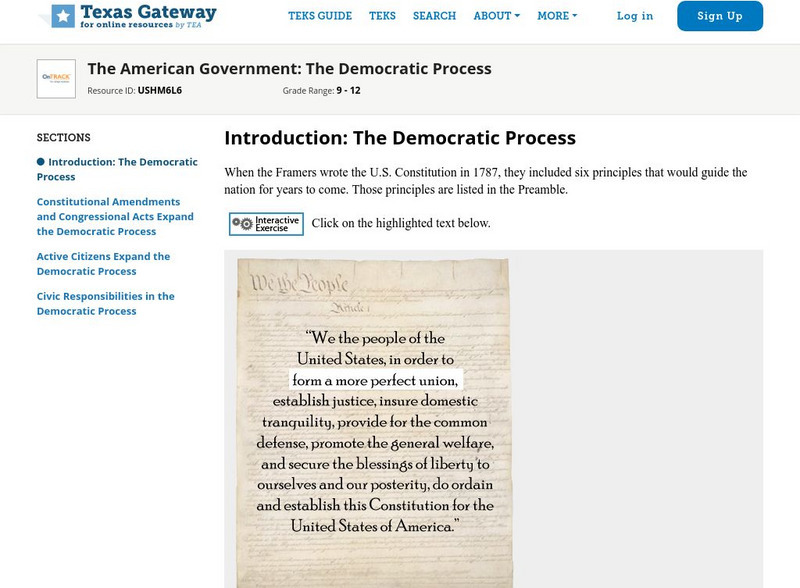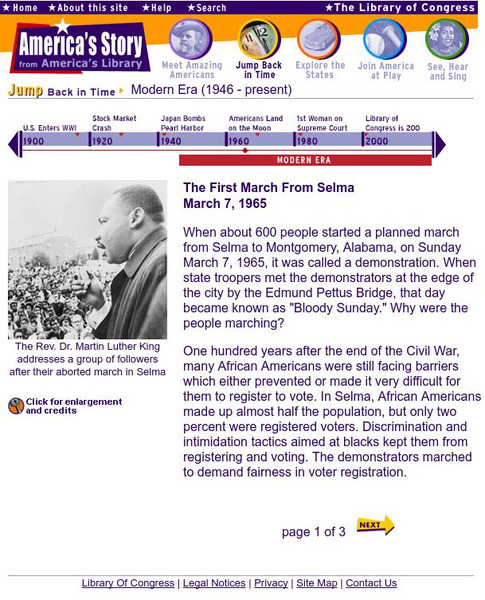Scholastic
Scholastic: Teachers: Rosa Parks: How I Fought for Civil Rights
Learn about African American Rosa Parks and her non-violent protest against racial discrimination. This resource addresses Parks' actions in the context of American race relations at the time. Read an interview with Parks about how she...
Read Works
Read Works: Civil Rights on a City Bus
[Free Registration/Login Required] Students read about Rosa Parks and her non-violent protest of segregation laws in the South. A question sheet is available to help students build skills in reading comprehension.
Houghton Mifflin Harcourt
Harcourt: Biographies: Martin Luther King, Jr. [In Spanish]
This resource offers a review of the life of this important man in the Civil Rights Movement. King believed in peaceful protests, instead of violence, to solve social problems. (In Spanish)
Yale University
Yale New Haven Teachers Institute: The Negro Holocaust, 1880 1950
This resource provides information on the lynching of African Americans, what it was, why it happened and how frequently it happened. It also outlines race riots in the first part of the 20th century as well as discussion on the black...
PBS
Pbs Learning Media: Segregation Ordinances: Birmingham, Al
This document from 1951 spells out Birmingham's segregation ordinances, the laws requiring the separation of the races.
Texas Education Agency
Texas Gateway: The American Government: The Democratic Process
Given primary and secondary resources, students will be able to identify and analyze various methods of expanding the right to participate in the democratic process.
Stanford University
Martin Luther King, Jr. And the Global Freedom Struggle
This article takes readers through the events leading to the expansion of the Civil Rights Movement to the north through a major non-violent campaign protesting unfair housing practices in Chicago.
BBC
Bbc: Mohandas "Mahatma" Gandhi
The idea of protesting by using non-violent means was a philosophy Gandhi modeled in India. Read about his background and how his religious beliefs inspired his peaceful ways. Included are conversations with Millie Polak who lived with...
Other
Core: Sit Ins
A brief description of the role of the sit-in as a non-violent way to protest segregation in the South.
Library of Congress
Loc: America's Story: The First March From Selma
This article details a key event in the civil rights struggle--the demonstration organized by the Rev. Martin Luther King in Selma, Alabama on March 7, 1965, when 525 people met a police blockade on the Edmund Pettus Bridge.
CommonLit
Common Lit: "Dr. Martin Luther King Jr., Changing America" by Barbara Radner
This is an informational article about how Martin Luther King Jr. worked toward changing America in the 1950s and 1960s. It includes a short bio of Dr. King and a reading purpose: As you read, take notes on the problems that African...
Polk Brothers Foundation Center for Urban Education at DePaul University
De Paul University: Center for Urban Education: Dr. Martin Luther King, Jr. [Pdf]
"Dr. Martin Luther King, Jr." is a one page, biographical passage about Martin Luther King, Jr. It is followed by an open-ended question which requires students to provide evidence from the story; it includes determining the author's...
Gilder Lehrman Institute of American History
Gilder Lehrman Institute: The Civil Rights Movement: Major Events and Legacies
[Free Registration/Login Required] An essay that speaks of the major events and legacies of the Civil Rights Movement.
Independence Hall Association
U.s. History: Rosa Parks and the Montgomery Bus Boycott
Rosa Parks started a revolution by refusing to give up her seat on a bus. Read about the Montgomery bus boycott, and see how the nonviolent actions of supporters of the Civil Rights movement succeeded in using the boycott to inspire more...


![Harcourt: Biographies: Martin Luther King, Jr. [In Spanish] Website Harcourt: Biographies: Martin Luther King, Jr. [In Spanish] Website](https://content.lessonplanet.com/knovation/original/10579-732be41f1c9d4b23ab8a4e47a2cd1392.jpg?1661188540)







